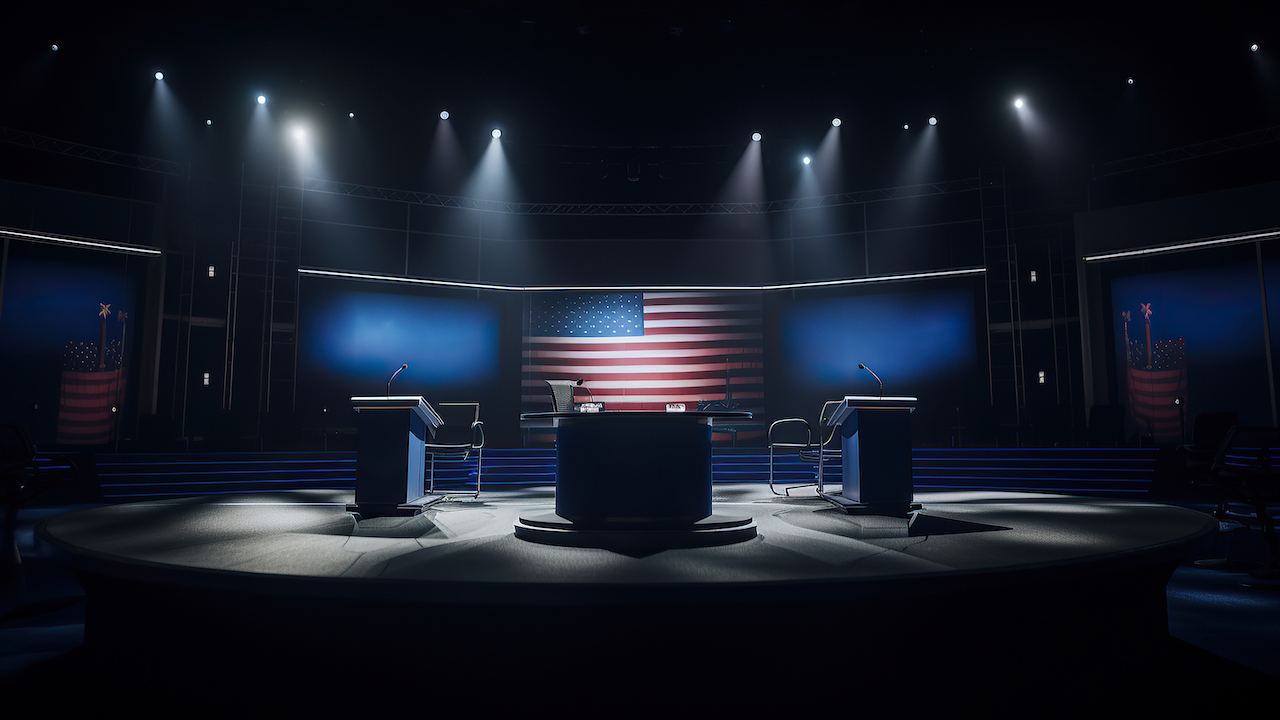Statewide coalition announces creation of the Michigan Debate Task Force

Voters in Michigan are being deprived of important opportunities to hear directly and in an unfiltered setting from those who want to serve as the state’s leaders. This is a problem that is escalating across the nation. The Michigan Debate Task Force has a solution.
By hosting regular debates for statewide offices in Michigan, the Task Force will increase the opportunities voters have to hear directly from candidates rather than through controlled messages thus improving the quality of information available to voters during the campaign season.
“Having engaged and informed citizens is vital to the success of our democracy,” said Philomena V. Mantella, Grand Valley State University President. “The Task Force’s commitment to providing equal, non-partisan access to candidates will help voters as they make their choices.”
Without an entity to convene regular candidate debates, any debates that have occurred in Michigan have been dependent upon the candidates’ campaigns deciding and negotiating the number, format and location. With that power, candidates always looked to negotiate for the best circumstances for their campaign and not necessarily what was best for the public.
The Task Force’s goal is to put the public front and center during campaigns for high office in Michigan by setting the expectation that candidates will participate in the debates it hosts. Current coalition members include:
Detroit Economic Club
Economic Club of Traverse City
Grand Rapids Chamber
Grand Valley State University
The Hispanic Center
Northern Michigan Chamber Alliance
Northwestern Michigan College
Oakland University
Urban League of Detroit and Southeast Michigan
Urban League of West Michigan
This year, the Task Force will host a package of three debates between general election candidates in different regions of the state. Michigan is tremendously diverse in its population, but also in its geography, which can drive different concerns for voters in different areas. With that in mind, one debate will be held in West Michigan (i.e., the Grand Rapids area) on September 12, Northern Michigan (i.e., the Traverse City area) on October 10, and Southeast Michigan (i.e., the Detroit metro area) on October 22. Each debate will cover issues important to the entire state but also focus on issues specific to those regions.
“Legislative and public policy issues impact the U.P. and northern Michigan in unique ways,” said Warren Call, President and CEO of Traverse Connect, a Northern Michigan Chamber Alliance member. “For Michigan to succeed, we need each region to succeed. The Task Force believes that our statewide candidates should hear about the unique concerns of different geographic regions.”
Because it is important for voters in all corners of the state to hear from statewide candidates, the Task Force has secured television partners who are trusted in their own communities and are also willing to offer the debate content to any other media organizations with an interest in sharing it.
All candidates who appear on the general election ballot, and meet the following criteria, will receive an invitation to participate in the debates.
- The candidate has a legally registered campaign committee and have filed all required and appropriate reports and paperwork with the Michigan Secretary of State and Federal Election Commission;
- The candidate has a campaign website with policy proposals publicly accessible;
- The candidate has been covered by statewide media as a recognized candidate for US Senate;
- The candidate has polled at 5% or higher in two public and independent (e.g., sponsored by a news organization) statewide polls during the month prior to the debate.
“The Task Force looks forward to working with the candidates who advance to the general election phase of the campaign to host these three debates for the good of voters.” said David Dulio, Director of Oakland University’s Center for Civic Engagement and Distinguished Professor of Political Science. “This is an incredibly important election in an incredibly important election cycle for Michigan and the nation. Candidates for the US Senate owe it to those who they seek to represent to provide clear and positive statements about why they should have the honor of representing Michigan in Washington, DC.”
For questions about the Task Force, please direct them to David Dulio at 248-370-2523 or via email at [email protected].

 April 30, 2024
April 30, 2024

